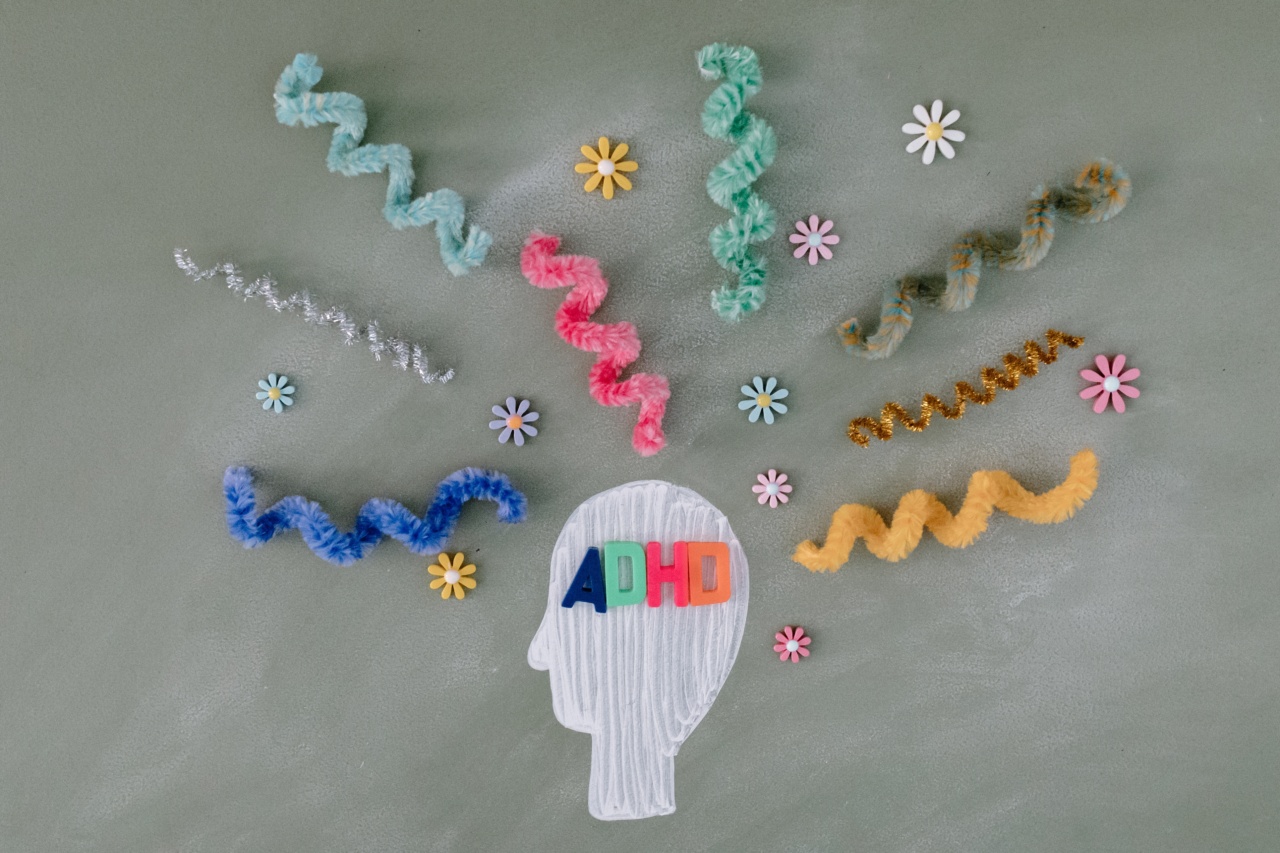Attention Deficit Hyperactivity Disorder (ADHD) is typically associated with children, but many adults also suffer from this condition.
In fact, it is estimated that around 4.4% of adults in the United States meet the criteria for ADHD, but a significant number of them remain undiagnosed and untreated. This lack of awareness and understanding surrounding ADHD in adults often leads to numerous challenges and difficulties in their personal and professional lives.
1. Common Symptoms in Adults with ADHD
ADHD symptoms in adults may manifest differently compared to children, making it easier for the condition to go unnoticed.
While children with ADHD tend to display hyperactivity, adults often exhibit more subtle signs such as difficulty with organization, time management, and distractibility.
2. Impacts on Relationships
ADHD can greatly affect relationships, both romantically and socially. Adults with ADHD may struggle with forgetfulness, impulsivity, and difficulty listening, all of which can strain relationships.
This can lead to misunderstandings, frustration, and even feelings of rejection or neglect by their partners and friends.
3. Challenges in the Workplace
ADHD can significantly impact an individual’s professional life. Adults with ADHD may struggle to focus on tasks, meet deadlines, and remember important details.
They may also have difficulty with time management and organization, leading to increased stress and lower productivity.
4. Mental Health Implications
Undiagnosed and untreated ADHD in adults can contribute to various mental health issues, including anxiety and depression. The constant struggle to meet expectations and the feeling of being overwhelmed can take a toll on their emotional well-being.
Moreover, the challenges they face in daily life can sometimes trigger negative self-esteem and feelings of inadequacy.
5. Substance Abuse and Addiction
Studies have shown a higher risk of substance abuse and addiction among adults with ADHD. Individuals with undiagnosed ADHD may turn to drugs or alcohol as a means to self-medicate the symptoms they experience.
This coping mechanism can lead to a vicious cycle of dependence and worsen the overall quality of life.
6. The Importance of Diagnosis
Early diagnosis and treatment of ADHD in adults can make a significant difference in their lives. By understanding the root cause of these challenges, individuals can develop strategies to manage their symptoms effectively.
Diagnosis not only allows for appropriate treatment but also helps in providing clarity and validation to those who have struggled unknowingly with ADHD for years.
7. Available Treatment Options
There are various treatment options available for adults with ADHD. These may include medication, therapy, and lifestyle modifications.
The right combination of treatments can help adults with ADHD improve their focus, manage their time better, and enhance their overall quality of life.
8. Strategies for Coping
In addition to professional treatment, there are several strategies that individuals with ADHD can utilize to cope with their symptoms.
These include implementing organizational systems, setting achievable goals, practicing mindfulness and relaxation techniques, and seeking support from loved ones or support groups.
9. The Role of Education and Awareness
Education and awareness about ADHD in adults are crucial to ensure early detection and appropriate support.
By increasing knowledge and understanding of this condition, we can create a more inclusive society that recognizes the challenges faced by adults with ADHD and provides the necessary resources and accommodations.
10. Seeking Help and Support
If you suspect that you or someone you know may have ADHD, it is important to seek professional help.
A healthcare provider or mental health professional can assess symptoms, provide a diagnosis, and create an individualized treatment plan to address the specific needs of the individual.






























